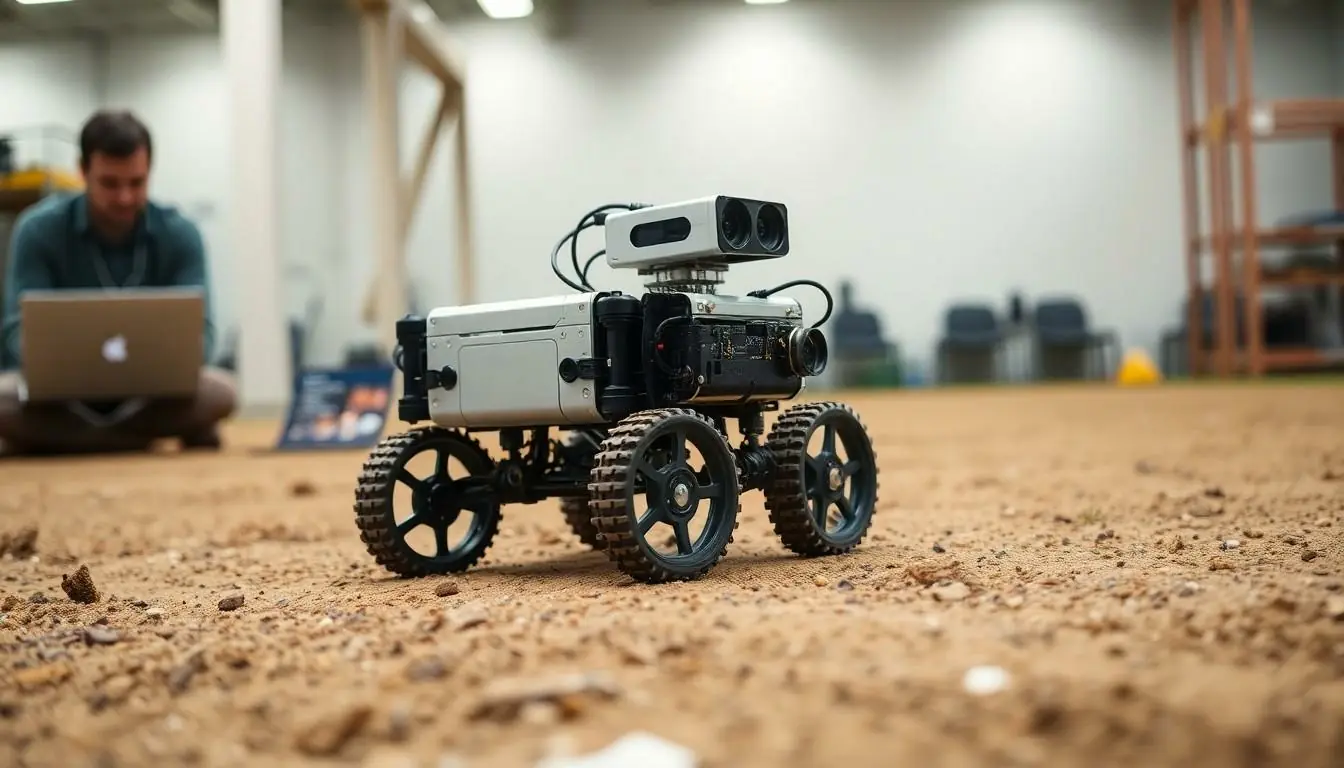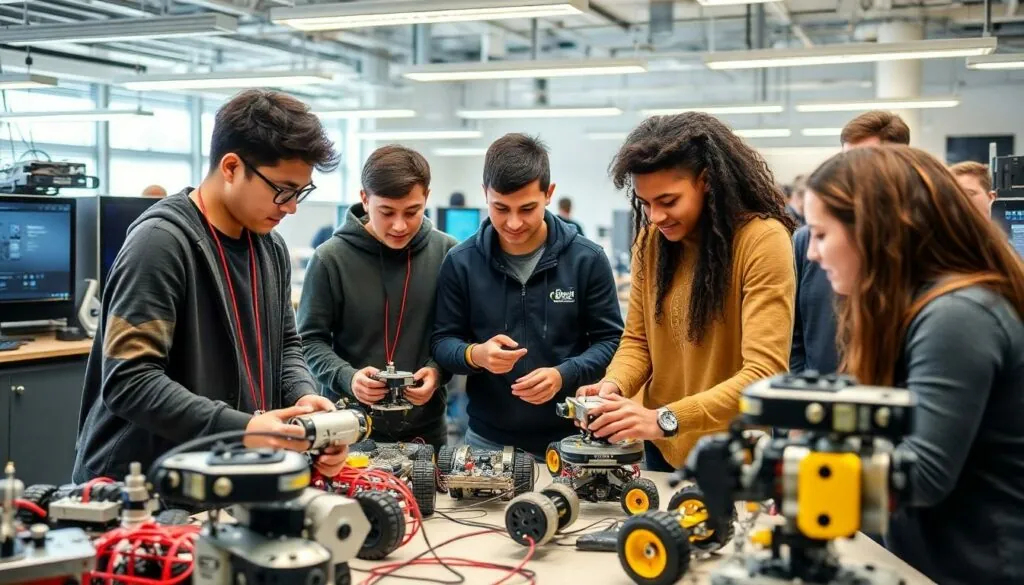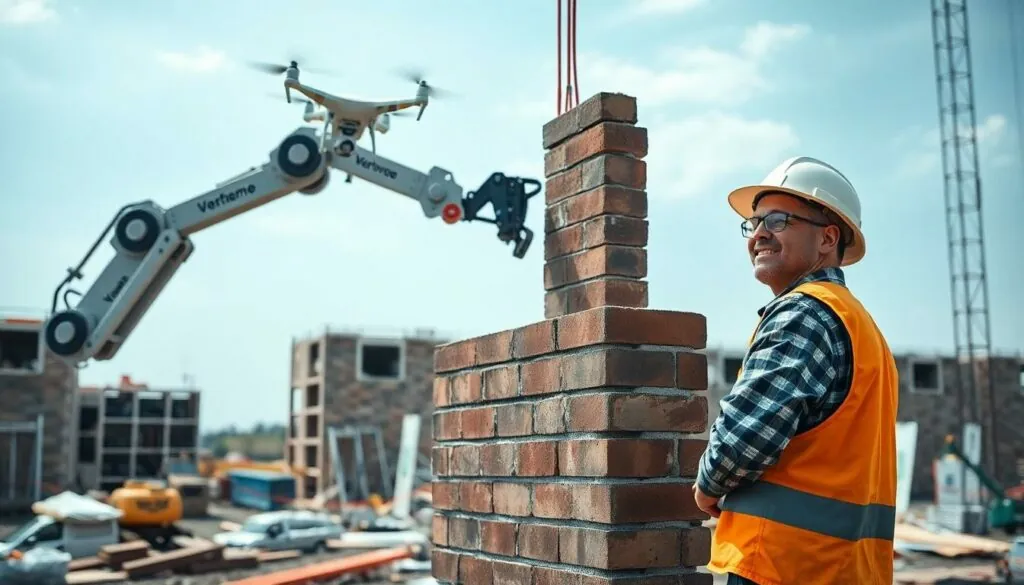When it comes to robotics, Georgia Tech isn’t just playing around—it’s leading the charge into the future. Nestled in the heart of Atlanta, this prestigious institution has become a playground for tech enthusiasts and aspiring engineers, where students don’t just learn about robots, they build them. Imagine a place where creativity meets cutting-edge technology, and where the next generation of robotic masterminds is born.
Table of Contents
ToggleOverview of Georgia Tech Robotics
Georgia Tech Robotics stands at the forefront of robotics research and education. It offers various programs that seamlessly integrate theory and practical application. Students engage in innovative projects, exploring fields such as automation, telepresence, and swarm robotics.
The Institute for Robotics and Intelligent Machines (IRIM) plays a critical role in directing research efforts. Under its guidance, scholars work on interdisciplinary projects that solve real-world problems. Researchers focus on areas like robotic perception, control, and human-robot interaction, contributing significantly to advancements in the field.
Specialized labs and resources enhance the learning experience. Facilities such as the Collaborative Robotics and Intelligent Systems Institute (CoRIS) provide students with cutting-edge equipment and technologies. These labs support experimentation and development of robotic systems across various applications, from healthcare to autonomous vehicles.
Competitive teams, like the Georgia Tech Robotics Team, demonstrate practical skills through national competitions. Members design and build robots to tackle specific challenges. Participation in events like the RoboCup or the Amazon Robotics Challenge fosters teamwork, problem-solving, and innovation.
Georgia Tech’s commitment to robotics education prepares students for successful careers. Graduates emerge as leaders in academia, industry, and research organizations. The ecosystem of collaboration, mentorship, and hands-on experience creates a robust foundation for the future of robotics.
Research opportunities abound, with faculty encouraging student involvement in projects. Engaging in these initiatives allows students to gain practical skills while advancing knowledge in robotics. As technology advances, Georgia Tech Robotics remains a pivotal institution in shaping tomorrow’s technological landscape.
Research Areas in Georgia Tech Robotics

Georgia Tech Robotics engages in various innovative domains, focusing on advancements that push the boundaries of technology.
Autonomous Systems
Autonomous systems play a crucial role in Georgia Tech’s robotics research. Researchers explore algorithms that enable robots to navigate and make decisions without human intervention. Applications range from unmanned aerial vehicles to ground robots for agricultural use. These systems aim to enhance efficiency and safety across multiple industries. Student projects frequently involve developing prototypes that can adapt to changing environments, showcasing the practical benefits of autonomous technologies.
Human-Robot Interaction
Human-robot interaction is another significant focus area at Georgia Tech. This research emphasizes creating intuitive ways for humans and robots to communicate and collaborate effectively. Projects examine user interfaces that facilitate smoother interactions and improve user experience. The development of social robots aims to enhance companionship and assistance in various settings, like healthcare and education. By understanding human behavior, researchers aim to create robots that can respond to social cues and engage meaningfully with users.
Robotics and AI Integration
The integration of robotics and artificial intelligence defines a pivotal research area at Georgia Tech. Researchers investigate how machine learning techniques can enhance robotic perception and decision-making. AI algorithms often empower robots to learn from their environments, adapting to new tasks with minimal human oversight. Collaborative projects target applications, including intelligent manufacturing and smart cities, where robots work alongside human operators. The culmination of robotics and AI paves the way for smarter, more autonomous systems that address complex real-world challenges.
Notable Projects and Achievements
Georgia Tech Robotics highlights several impressive projects and achievements that showcase its pioneering spirit in the robotics domain.
RoboCup Team
The RoboCup Team at Georgia Tech competes in international robotics soccer tournaments, emphasizing teamwork and technical skills. Students design and program autonomous robots to play soccer, demonstrating advanced algorithms in real-time decision-making. Utilizing innovative strategies, the team continuously refines their robots’ abilities to handle dynamic environments. This experience cultivates critical problem-solving skills, turning students into proficient engineers. Recent competitions have further enhanced the team’s reputation, securing multiple awards and recognitions. Georgia Tech’s participation in RoboCup underscores its commitment to fostering creativity in robotics through competitive challenges.
Collaborative Robots
Collaborative robots, or cobots, play a vital role in Georgia Tech’s research initiatives. These robots interact safely with humans in various settings, from manufacturing to healthcare. Students develop systems that enhance human-robot collaboration, focusing on intuitive designs and user-friendly interfaces. Notable projects include robots that assist in surgical procedures and enhance efficiency on factory floors. Through hands-on projects, students explore the integration of sensors and AI, leading to more adaptive robotic systems. Georgia Tech’s emphasis on collaborative robots illustrates the institution’s drive to innovate within the robotics landscape.
Educational Opportunities in Robotics
Georgia Tech offers abundant opportunities in robotics education, catering to students at both undergraduate and graduate levels. The Institute’s emphasis on hands-on learning and interdisciplinary collaboration strengthens students’ practical skills and theoretical knowledge.
Undergraduate Programs
Undergraduate students explore robotics through various degree programs, particularly in Electrical and Computer Engineering and Mechanical Engineering. Students gain insights into design and programming while participating in projects that merge academics with real-world applications. A signature feature is the senior design project, where students collaborate on building innovative robotic systems. Faculty mentors provide guidance, ensuring projects align with industry needs. Through organizations like the Georgia Tech Robot Club, students further enhance their learning with practical exposure and collaboration in robotics.
Graduate Programs
Graduate programs focus on advanced robotics research and applications. Students pursue Master’s or Ph.D. degrees emphasizing research in areas such as machine learning and human-robot interaction. Coursework caters to specialized interests, allowing students to delve deeply into topics like robotic perception and control systems. Research opportunities within the Institute for Robotics and Intelligent Machines facilitate collaboration across disciplines, enhancing innovation. Active participation in research projects with faculty helps graduates acquire skills that lead to careers in academia and industry as leaders in robotics technology.
Industry Partnerships and Collaborations
Georgia Tech Robotics actively engages in partnerships with various industries, enhancing research and development within the robotics field. Collaborations span multiple sectors, including healthcare, automotive, and manufacturing. These relationships enable students and faculty to tackle real-world challenges while developing innovative solutions.
Notable partnerships with companies such as AT&T and GE promote the exchange of ideas and technological advancements. Each collaboration allows for the integration of cutting-edge technology with academic research, advancing robotics applications. Research projects often focus on improving robotic systems for production lines or developing smart healthcare solutions.
Internship programs provide students with invaluable industry experience. Many students secure internships through Georgia Tech’s connections, applying classroom knowledge in practical settings. Real-world applications of robotics enhance student learning and prepare them for careers following graduation.
Joint research initiatives foster a collaborative approach to addressing challenges in robotics. Projects such as the Frontiers in Robotics and AI aim to combine academic expertise with industry-driven goals. This partnership model not only accelerates innovation but also strengthens the robotics ecosystem.
Georgia Tech also participates in national research consortiums, linking educational institutions with leading tech companies. These alliances encourage knowledge sharing and propel advancements in robotic technologies. Additionally, university-led initiatives aim to promote diversity and inclusivity within the robotics workforce.
Events like hackathons and workshops bring together students, faculty, and industry professionals. Each gathering fosters networking opportunities, allowing participants to exchange ideas and collaborate on projects. Creativity often flourishes in these stimulating environments, driving further technological progress.
Overall, the collaborative spirit at Georgia Tech Robotics cultivates a thriving community, positioning itself as a leader in shaping the future of robotics.
Georgia Tech Robotics exemplifies a vibrant hub for innovation and education in the robotics field. With its focus on hands-on learning and interdisciplinary research, it cultivates a new generation of skilled professionals ready to tackle real-world challenges. The commitment to collaboration with industry partners further enhances its impact, providing students with invaluable experiences that bridge theory and practice. As Georgia Tech continues to push the boundaries of robotics, it solidifies its reputation as a leader in shaping the future of technology. The dynamic environment fosters creativity and innovation, ensuring that the institution remains at the forefront of advancements in robotics for years to come.





